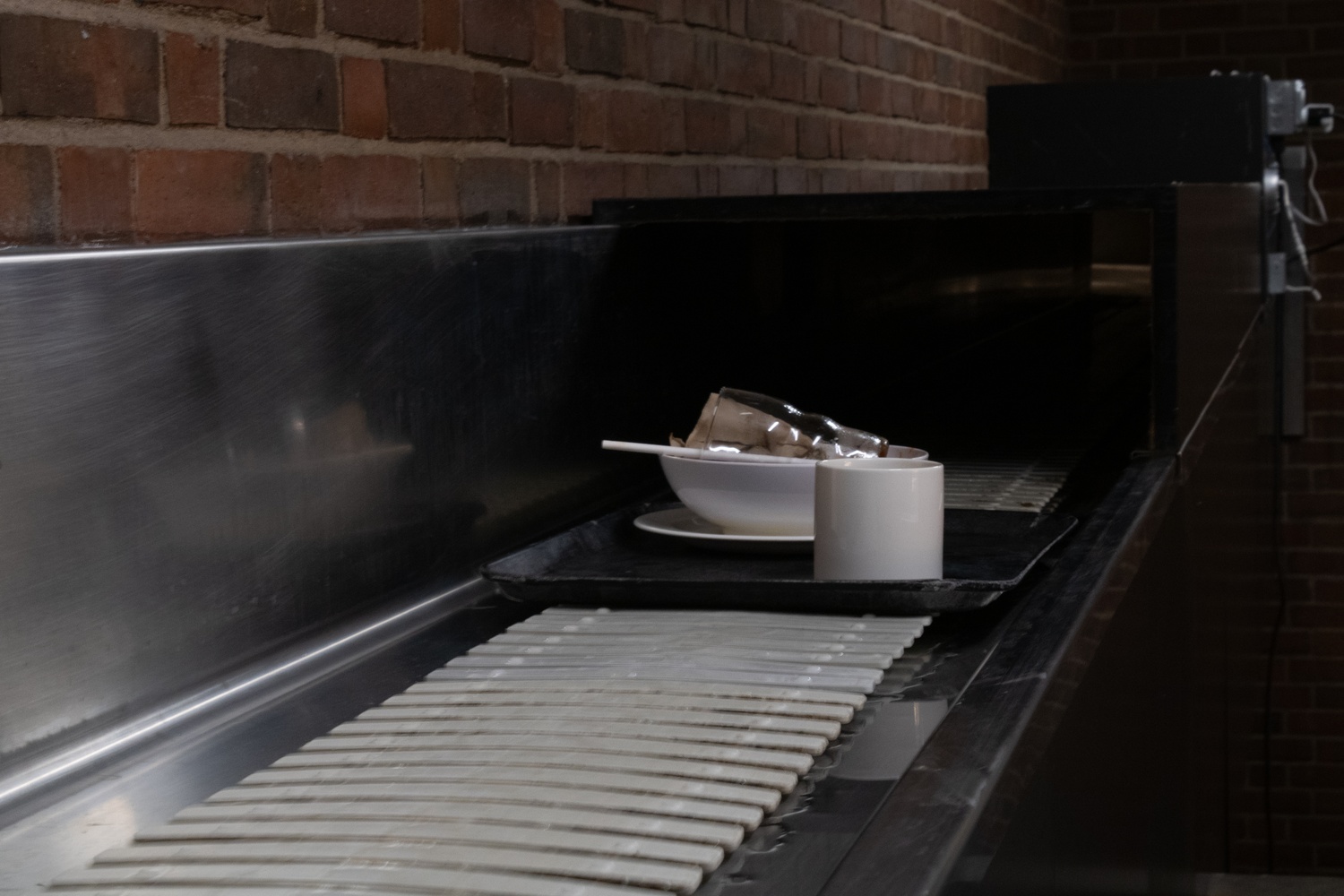
News
Summers Will Not Finish Semester of Teaching as Harvard Investigates Epstein Ties

News
Harvard College Students Report Favoring Divestment from Israel in HUA Survey

News
‘He Should Resign’: Harvard Undergrads Take Hard Line Against Summers Over Epstein Scandal

News
Harvard To Launch New Investigation Into Epstein’s Ties to Summers, Other University Affiliates

News
Harvard Students To Vote on Divestment From Israel in Inaugural HUA Election Survey
Researchers Use Mather House as ‘Living Laboratory’ for Food and Energy Waste Study

Mather House is being used as a “living laboratory” to study energy consumption and waste production in older buildings as a test case for sustainable living.
A team of Harvard undergraduate and postdoctoral researchers installed cameras and other sensors in the undergraduate house starting in November 2024. The sensors track food waste from the House dining hall and measure community space energy usage.
One of the Measuring Mather study’s lead researchers, engineering postdoctoral fellow Paul R. Kaneelil, led an open tour to visit the House’s energy and waste sensors on Wednesday. Some of the sensors measure carbon dioxide and humidity, while others record photos of food waste.
Sensors that measure temperature with humidity fluctuation detect the loss of thermal energy, including through the windows and lack of ventilation, Kaneelil said.
Mather House Faculty Deans L. “Maha” Mahadevan and Amala Mahadevan oversee the project, and said at the event that they will study the results before developing possible policy proposals for sustainable living practices.
“Mather — for us, for our community — has always stood for care, has stood for community and stood for curiosity,” L. Mahadevan, a professor of applied mathematics, biology, and physics, said.
“Measure Mather started pretty much the same way, trying to ask questions about the fact that somebody may see a light on for too long, a shower on perhaps for too long, maybe see food which could have been consumed but wasn’t,” Mahadevan added. “And then also wonder, ‘What is it that an individual can do when there are so many of us?’”
The group, which involves more than a dozen students and faculty, tested switching disposable to-go containers to reusable ones in Mather last year before working with Harvard Undergraduate Dining Services to implement the change in all undergraduate houses this fall.
Undergraduate researchers also have the opportunity to participate in the project, analyzing data and building models to address sustainability issues, according to Golnar G. Fard, a postdoctoral researcher working on the Measure Mather project.
Perce Thaveesittikullarp ’27, an undergraduate research assistant working to measure food waste, said the team uses a machine learning model and the HUDS menu to analyze pictures of students’ dish trays and calculate the waste’s calories.
The food waste program, Thaveesittikullarp said, “is so important because it’s actually tied to some potential ways of finding solutions, and then quantifying which solutions work best to reduce food waste.”
Utilizing the data, Thaveesittikullarp said they hope to partner with HUDS and test various methods of waste reduction — including visual waste representations and decreased plate or tray sizes.
Sophie-An Kingsbury Lee ’26, a Mather resident involved in the project, added that no cameras are pointed at students.
Researchers plan on continuing to measure and analyze trends before moving into a stage of developing solutions.
“Our primary goal is not necessarily to find ways to mitigate and change things, but rather to just measure the state of things right now and see how efficient or inefficient it is,” Kaneelil said. “And then, of course, down the line, we would want to come up with strategies to do mitigation, but that’s not currently the focus right now.”
Correction: November 9, 2025
A previous version of this article misspelled the surname of engineering postdoctoral fellow Paul R. Kaneelil.
Want to keep up with breaking news? Subscribe to our email newsletter.
